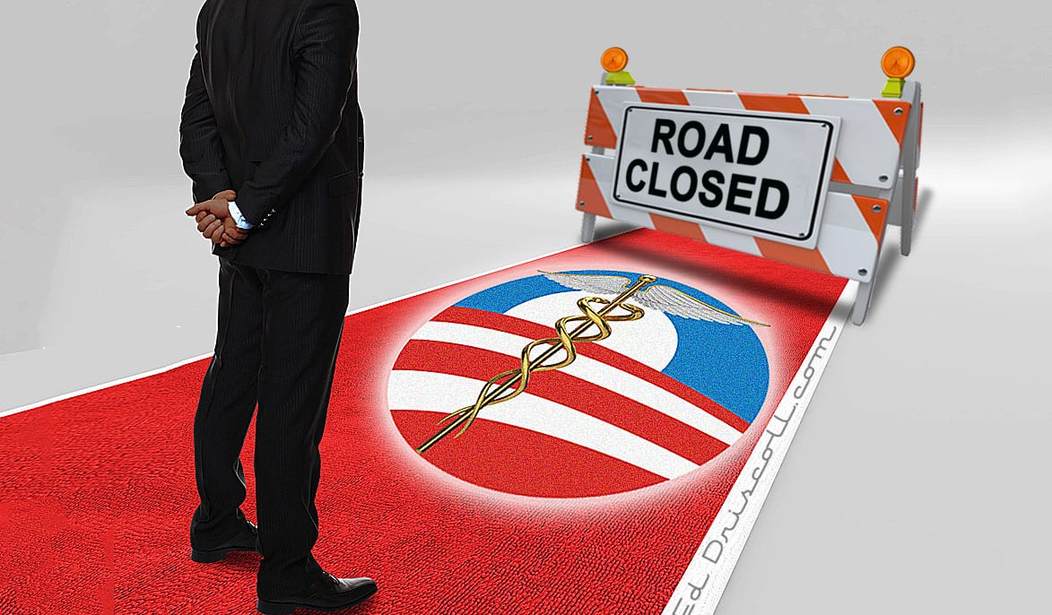The entire purpose behind the giant kluge that was the original Obamacare plan — slammed through in the dead of night on Christmas Eve 2009 without a single GOP vote — was to pretend to have done something about “health care” by essentially bribing the insurance companies with promises of “risk corridor” stop-losses and a captive market. In reality, the Democrats knew with malice aforethought that the thing couldn’t and wouldn’t work, and would thus present them with an opportunity down the line to “reform” health-care “reform” by entirely nationalizing it. It was a breathtaking power grab that, in the interim, the feckless pansies who run (for now) the GOP did absolutely nothing to reverse. And so here we are:
In a major blow to Obamacare, one of America’s largest health insurers said it was pulling out of most of the markets in which it was participating, citing huge losses in the past quarter.
In a statement Monday, Aetna reported that it lost $200 million in the second quarter of 2016 in Obamacare marketplaces and as a result would participate next year in just four states: Delaware, Iowa, Nebraska and Virginia. This year, Aetna was offering health insurance plans in 15 states’ Obamacare markets, and its reduction mirrors moves by several other major health insurance providers in recent months.
“As a strong supporter of public exchanges as a means to meet the needs of the uninsured, we regret having to make this decision,” Aetna CEO Mark Bertolini said.
Some conservative critics of Obamacare, and even some liberal advocates who favored socialized medicine, predicted that private insurance companies would pull out from a costly “death spiral” — as more mandates and regulations kick in, as sicker patients sign up and as healthier patients figure it makes more financial sense not to buy expensive plans but pay the Obamacare law’s fines instead. With few private companies available, the government would then have to offer insurance directly — through the “public option.”
The “public option,” by the way, is simply an anodyne, unthreatening euphemism for nationalized health care.
Obamacare marketplace CEO Kevin Counihan seemed to suggest Aetna was among insurers that struggled to adjust to new regulations that forced insurers to accept consumers of all kinds, rather than pursue profit. “It’s no surprise that companies are adapting at different rates to a market where they compete for business on cost and quality rather than by denying coverage to people with pre-existing conditions,” he said.
It isn’t insurance if you can buy it after you get sick, but nobody wanted to be a blue meanie and admit that before the Patient Deflection and Unaffordable Care Act was signed into law in March 2010. Sin in haste, repent at leisure, America.
The Affordable Care Act ushered in a series of changes to the individual market. Most notably, insurers could no longer seek out profits by denying sicker customers. The law forced nearly all Americans to buy coverage, balancing out the insurers’ risk, though fines for flouting the “individual mandate” didn’t inflict much pain in Obamacare’s early rounds.
Also, a set of programs designed to mitigate insurers’ losses in the first three years of Obamacare isn’t paying out as much participants had hoped.
Hope is not a plan. But it’s what passes for one nowadays.









Join the conversation as a VIP Member